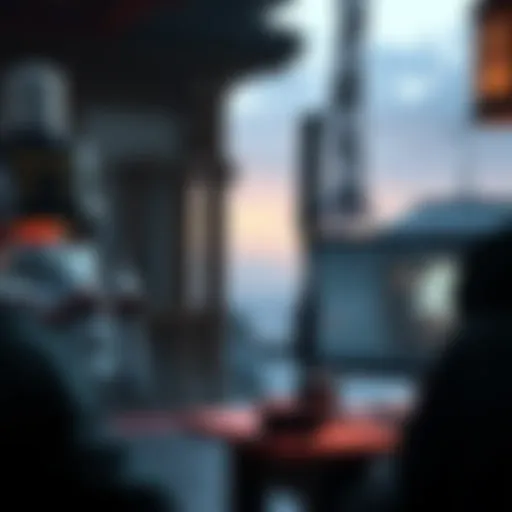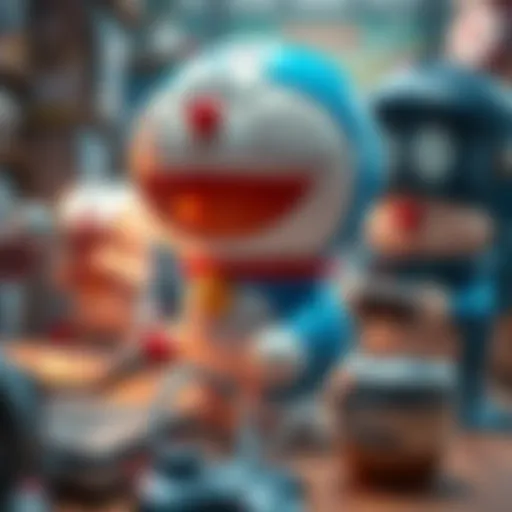Kisaki: Analyzing Time Leap Theories in Anime
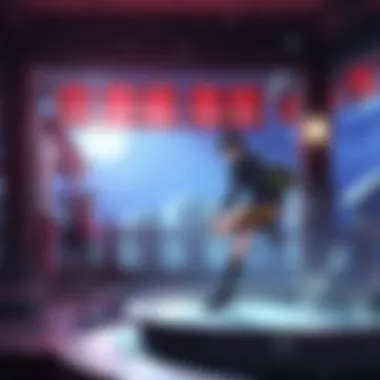

Intro
In the intricate world of anime, character arcs often intertwine with fantastical elements that challenge our understanding of time and reality. One such character is Kisaki, a pivotal figure in the narrative landscape of the series. The notion of time leaping, a staple in fantastical storytelling, raises pertinent questions regarding character motivations and plot dynamics. This article intends to thoroughly dissect Kisaki’s role, examining the underlying mechanics of time manipulation and its repercussions within the storyline. The exploration will not only clarify Kisaki's implications in the timeline but also delve into the broader thematic elements that time travel introduces.
Understanding a character like Kisaki requires grappling with the complexity of his actions and decisions, which often seem to dance along the lines of predestined fate and free will. What drives Kisaki? Is it ambition, or is there an underlying motive tied to a deeper existential question? These points will be articulated through analytical lenses aimed at anime enthusiasts, tech enthusiasts, and app developers alike.
The narrative implications of time leaping concern not just the mechanics of how it’s executed but also its effects on character development and interaction. A well-executed time leap can alter character arcs dramatically, leading to tension and unexpected alliances or rivalries ripe for exploration. As we venture onward, we shall highlight key aspects of Kisaki's journey, dissecting his influence on the plot and the lives of those around him, interspersed with critical thought on the anime's reflection on time itself.
Understanding the context for Kisaki's character begins with a dive into the reasons behind time manipulation and how it informs the overall storyline. As we unwrap these layers, we also acknowledge the rich world of technology and tools—specifically, apps—that can enhance our anime experience and understanding.
Top Anime APK Recommendations
Anime aficionados know that to enjoy their favorite series fully, having the right tools can make all the difference. Here are some top recommendations for APKs that can elevate your viewing experience.
Best APKs for Streaming Latest Episodes
- Crunchyroll: A staple for anime fans offering a diverse library of titles that include simulcasts straight from Japan. Perfect for those who want to stay up to date with the latest episodes.
- Funimation: Known for its extensive collection of dubbed anime, Funimation is a haven for those who prefer English dubbing over subtitles. Fresh episodes available in a timely manner.
- VIZ Media: Great for manga readers as well, VIZ provides a robust platform for streaming anime as well as reading the latest manga chapters.
Essential Apps for Manga and Anime Fans
- MyAnimeList: A community-driven site where you can track what you've watched, find recommendations, and engage with fellow fans.
- AnimeLab: Offers a free and premium service for streaming anime with a vast selection of episodes available in your region.
Selecting the right app can enhance not only your accessibility to content but also your overall engagement with the anime community. It's crucial to choose platforms that resonate with your viewing habits and preferences.
As we progress into the heart of our analysis on Kisaki and the nuances of time leaping, we aim to inform and engage, presenting details that both enrich knowledge and provoke thought.
Prologue to Kisaki
In the vast tapestry of anime narratives, few characters evoke as much intrigue and debate as Kisaki. This article aims to unravel the complexities entwined in his character, particularly spotlighting the enigma of his potential time-leaping abilities. While many anime characters exhibit unique traits, Kisaki stands out as a particularly compelling figure due to the deep layers of his backstory and his multifaceted role within the plot. By examining why Kisaki doesn't simply fade into the background as a typical antagonist, but instead remains a riveting focal point in discussions about time travel, we can start to appreciate the significant impact he has on the overall storyline.
The idea of time manipulation, although a well-worn trope in storytelling, takes on fresh dimensions when applied to Kisaki. A character whose motives are often shrouded in subterfuge, his apparent penchant for orchestrating events raises questions about fate, control, and consequence. For audiences who thrive on intricate plots and character depth, exploring Kisaki becomes not just an academic exercise, but an enriching experience that aligns with the larger themes and moral quandaries of anime lore. Through this analysis, we aim to explore not just who Kisaki is, but why he embodies the very essence of time in the series, weaving into the fabric of fate as if it were a mere thread in his hands.
Kisaki's significance transcends his immediate actions. He is a catalyst for both conflict and resolution, making it essential to understand his background and the way he shapes the narrative around him. Thus, the following sections delve into Kisaki’s character background, his role in the plot, and the broader implications of his time-related abilities. For any fan of anime, particularly those captivated by themes of time and destiny, this exploration is bound to reveal a rich world where nothing is quite as it seems.
Understanding Time Travel in Anime
The concept of time travel in anime serves as a crucial pillar for developing engaging narratives and intricate character arcs. It allows creators to explore what-if scenarios and delve into the characters' pasts or futures, weaving a rich tapestry of choices and consequences. For viewers, understanding how time travel works not only enhances their appreciation for the plot but also invites them to ponder deep philosophical questions surrounding fate and free will. This article examines how time travel plays a role in the story of Kisaki and the broader lore of anime, illustrating its significance and highlighting some key aspects that fans should consider.
Defining Time Travel
Time travel is more than just a narrative device; it’s a gateway to exploring complex themes and character motivations. At its core, time travel can be defined as the movement between different points in time, often as a result of advanced technology or supernatural powers. In many anime series, this movement is not simply about changing the past or future; it delves into the effects of those changes on the primary narrative. Indeed, in the context of Kisaki, the notion of time travel forces us to confront several questions:
- What is the nature of time?
- Can one truly alter destiny, or do events ultimately unfold as they are meant to?


By reading the signs, fans can better understand the implications of Kisaki's actions. Contradictory timelines and alternate realities come into play, complicating the moral landscape of the narrative.
Common Themes and Tropes
Time travel in anime often follows certain themes and tropes that create familiarity while also demanding viewer engagement. Here are some common elements that recur:
- The Butterfly Effect: Small actions in the past can lead to significant changes in the future. Kisaki’s choices often ripple through the narrative, resulting in unforeseen consequences.
- Parallel Universes: Many series create alternate versions of reality, showcasing how different choices yield different outcomes. This theme plays a significant role in the storytelling of Kisaki.
- Time Loops: Characters might find themselves reliving certain events, prompting them to make different choices in hopes of achieving a desired outcome.
- Memory Retention: Some protagonists retain their memories from different timelines, leading to unique character growth as they navigate new challenges.
Understanding these themes helps illuminate the depths of Kisaki's character. It reveals not only his motivations but also how his story interacts with broader questions like morality and existentialism. Thus, the examination of time travel in anime, especially relating to Kisaki, invites fans to engage with the narrative's complexities and explore their own interpretations of time and its constraints.
Kisaki's Potential Time Leap Ability
Kisaki's potential ability to leap through time is not just a whimsical notion; it holds significant bearings on the foundational structure of the narrative. Many fans speculate about this, discussing the mechanics of time travel in anime and how they could influence character arcs and plot development. However, understanding the nuances of such a theory regarding Kisaki requires a careful look at the evidence both supporting and opposing the assertion. The very idea of time leaping, intertwined with fate and free will, suggests layers of complexity that warrant dissection.
The topic is paramount, as it raises essential questions about the impact of time manipulation on relationships, growth, and the unfolding of key events. This theory is essential not only to comprehending Kisaki’s character but also to appreciating the broader themes woven into the storyline. If Kisaki truly has control over time, the implications for his motivations and actions become profound.
Evidence Supporting Time Leaping
There are a few pivotal moments in the series that hint at Kisaki’s possible mastery of time. First and foremost, his uncanny ability to anticipate the moves of his adversaries seems more than just luck or intuition. For instance, during critical confrontations, Kisaki often appears to have foresight, making strategic decisions that alter the immediate outcomes significantly. This can be interpreted as a sign of time-leaping abilities—he might have experienced these events before, thus being privy to their outcomes.
Another strong piece of evidence is his relationship with characters like Takemichi. This dynamic raises questions about time; if Kisaki were leaping through timelines, does he have memories of alternate realities? Fans argue that the moments where his reactions are not aligned with the present timeline's rules suggest a deeper understanding of events yet to unfold.
One can also look at Kisaki's refusal to adhere to conventional timelines. Characters often find themselves in loops of conflict he orchestrates, which can be theorized as a way of rewinding the clock for his gain. These elements construct a narrative that seems deliberate rather than reactive, consistently bringing forth specific outcomes that would be improbable without some manipulation of time.
Counterarguments Against the Theory
Despite the evidence presented, some fans dismiss the notion that Kisaki possesses time-leaping abilities. Critics often suggest that his calculations are simply the results of high intelligence and strategic planning rather than actual time manipulation. They argue that his impressive foresight can be attributed to his understanding of human behavior and the psychological factors at play. This could indicate that he merely capitalizes on others’ predictable reactions, rather than bending time to his will.
Moreover, some argue that the series itself has not laid down clear rules that would permit such powers. Without concrete evidence or guidance within the lore, suggesting Kisaki can manipulate time could lead the narrative astray. If every character had similar abilities, the stakes would be significantly diminished. What would be the point of conflict if time could be altered at will?
Lastly, it’s also noted that there’s often a consistent flow to storytelling in anime; deviations such as sudden time leaps could render character motivations unclear, failing to meet the narrative standards set by the creators. The idea that Kisaki is manipulating time might detract from the human elements of growth and struggle that resonate so deeply with viewers.
Character Analysis: Kisaki's Role
Understanding the character of Kisaki is integral to dissecting the broader themes and narrative structure of the anime. Kisaki isn’t merely a villain; he embodies the complexities and moral ambiguities that can arise when time manipulation is involved. His role as an antagonist serves not only to drive the plot forward but also to challenge the morals of the other characters, prompting them to question their own beliefs and decisions.
Motivations and Goals
Kisaki's motivations reveal a deep-seated desire for power and control, which is a common trait among villains. What sets him apart is the intricacy of these motivations. Instead of a simple lust for domination, Kisaki’s actions stem from a multifaceted emotional landscape. He seeks revenge against the injustices he suffered, all while navigating a labyrinth of fate that he wishes to alter to his advantage.
- Drive for Authority: A fundamental aspect of Kisaki's character is his hunger for authority, which he pursues relentlessly.
- Long-Term Planning: Unlike many characters who react impulsively, Kisaki displays remarkable patience, often orchestrating events over an extended timeline.
- Identity and Legacy: His quest isn't just about immediate gain; it’s also about how he is remembered in the annals of history.
It’s evident that Kisaki’s goals are not merely selfish. He operates under a belief that his suffering legitimizes his desire to rewrite his own narrative, making him both relatable and repulsive. This conflict stirs sympathy even among vigilant observers, inviting the audience to ponder whether the ends justify the means.
Kisaki's Interactions with Other Characters
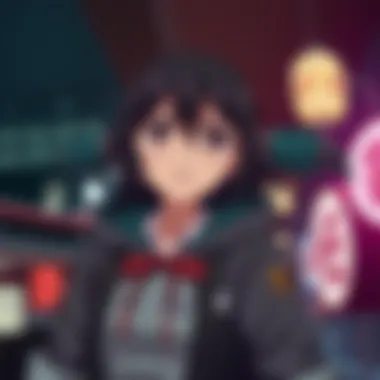

Kisaki's interactions with other characters are a reflection of his manipulative nature and the impact he has on those around him. He serves as a catalyst for change, often pulling a variety of strings to achieve his ends.
- Mentorship and Manipulation: He takes on almost a mentor-like role with certain characters, leading them down a path they might not have chosen otherwise. In this twisted sense of guidance, he showcases his masterful manipulation abilities.
- Conflict and Resistance: His relationships are rife with conflict, particularly with his primary opponents. These confrontations are not just fights but also ideological battles, where Kisaki represents a darker vision of what can be achieved through time manipulation.
- Emotional Connections: Interesting nuances arise when Kisaki engages with characters on a more personal level. His interactions often reveal vulnerabilities that add layers to his character, distinguishing him from one-dimensional antagonists in anime lore.
Through these relationships, Kisaki illustrates how time-weaving can splinter relationships and create rivalries. His role as a time manipulator is not just about altering events; it’s about altering perceptions and trajectories for all involved.
In essence, studying Kisaki illuminates the narrative's greater questions about agency, ethics, and the innate struggle against fate.
As we delve deeper into the themes of time and its consequences, the nuances of Kisaki's character become more pronounced and thought-provoking. This analysis not only enriches our understanding of Kisaki but also invites broader discussions about morality and consequence in the realm of anime storytelling.
Narrative Implications of Time Leaping
The concept of time leaping bears significant weight in anime, especially when dissecting the character of Kisaki. This phenomenon poses questions that go beyond surface-level entertainment. Its implications on the story’s structure, character journeys, and moral queries frame a narrative rich with complexity. As we delve into Kisaki’s involvement with time-traveling, the ramifications touch upon character development and overarching story arcs.
Effect on Character Development
Time manipulation speaks directly to character evolution. For Kisaki, the potential to leap through time introduces layers of depth to his personality traits, allowing for audience engagement in a unique way. This power—or belief in it—illuminates his motivations, shaping how he relates to others.
- Ambition intertwined with moral ambiguity: Kisaki's relentless ambition might come off as purely evil in a straightforward narrative. However, the ability to time leap could be seen as a voice of desperation that echoes within him. His manipulations signify an ongoing battle against fate. Characters like him tend to grapple with complex feelings that add texture to their development.
- Connections with other characters: Through interactions with others, we see how Kisaki’s potential time-leaping abilities affect relationships and influence dynamics. His intricate ties with figures like Takemichi highlight how time affects not just actions but emotional responses as well.
These developments lack coherence without the backdrop of the time-leaping theory, suggesting Kisaki’s character is not simply a static villain but rather a product of his decisions, shaped by an understanding—or misunderstanding—of time itself.
Impact on Story Arcs
Examining how time-leaping affects the plot reveals a cascade of events that ripple through the narrative. The idea of changing the past brings several elements into play:
- The Butterfly Effect: Kisaki’s actions in past timelines unveil a series of unintended consequences that echo throughout the series. Each choice reverberates, magnifying how small shifts in time can alter the future significantly. This organic unpredictability could engage viewers, prompting them to question their understanding of sequential narrative.
- Conflict and Resolution: As various arcs unfold, Kisaki’s ability to manipulate certain events allows for substantial conflicts. Characters’ attempts to stop him lead to intricate clashes that not only propel the storyline but also reveal deeper themes about agency and consequence. The recurring battles against Kisaki could be seen as both a physical and philosophical pursuit of altering one’s destiny.
Thus, time leaping in Kisaki’s narrative reshapes the core of the storyline itself. The ability to manipulate fate walks a fine line between hope and despair, continually pushing the characters—especially Kisaki—towards new realizations and consequences that inevitably lead them back to the same essential questions: What does it mean to control time, and what truly lies within the fabric of fate?
"In the grand tapestry of time, every thread pulled sends ripples through the fabric, altering both the seen and unseen landscapes of existence."
As viewers grasp these narrative implications, it creates a web of intricately interlinked themes that sustain interest and provoke thought long after the screen fades to black. The deeper exploration positions both the character Kisaki and the narrative itself in a way that encourages discussion about time, choices, and the heavy burden that comes with both.
Thematic Elements of Time and Consequences
The importance of understanding the thematic elements of time and consequences within the context of Kisaki’s narrative cannot be overstated. In many anime series, time is depicted not just as a linear progression but as a complex web of possibilities. Kisaki's character embodies this complexity, creating a fertile ground for exploring profound themes that resonate with viewers. This exploration not only deepens the story but also engages with philosophical and emotional aspects of human existence.
Exploration of Fate vs. Free Will
In the anime landscape, the concept of fate versus free will often serves as a crucial battleground for character motivations and actions. Kisaki's story does a fine job of illustrating how fate can feel predetermined, while still allowing room for personal choice. The show raises questions like, Are we merely puppets of time, or do we have the strings to change our fate? The audience witnesses Kisaki's interactions with the timeline, where he seems to find loopholes in his predestined path. These moments create tension, compelling him to wrestle not just against external forces, but also against his own desires and regrets.
By challenging the notion of fate, the story invites the audience to ponder how much control one truly wields over their life’s narrative. Kisaki’s tactics, often manipulative and cunning, signal a desperate attempt to assert his agency in a seemingly unforgiving world. His struggles illuminate the dichotomy between accepting one’s fate and fighting to rewrite it, which is a theme that resonates across cultures and literature.
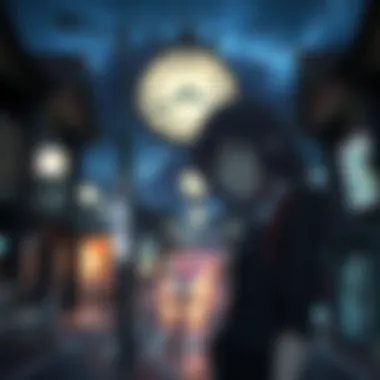

Consequences of Altering Time
Altering time—whether through leaps, shifts, or detours—comes with its own set of grave consequences. Kisaki makes choices that not only affect him but also ripple throughout the lives of others. These decisions echo the age-old adage, “A stitch in time saves nine,” emphasizing that even small changes can lead to expanded and often unforeseen repercussions. In Kisaki's case, his interventions create a domino effect, entangling other characters in his web of altered realities, often with tragic outcomes.
The narrative substance surrounding the consequences of time manipulation is rich and multilayered. Characters who are impacted by Kisaki’s actions frequently confront the moral implications of his decisions. Viewers are left questioning whether it is justifiable to change the past if it means consequence in the present or future. Is it ethical to alter events for personal gain, or does it create a moral quagmire where all involved suffer? This tension emphasizes the heavy burden that comes with the ability to influence time.
To summarize, dive deep into these thematic elements reveals not only the complexities of Kisaki's character but also enriches the entire narrative. The interplay between fate and free will invites a rigorous examination of human motivations while illustrating the significant consequences of time alteration. Such themes elevate the anime beyond mere entertainment, encouraging philosophical discussions that linger long after the screen goes dark.
“The future isn’t set. There is no fate but what we make for ourselves.” - Kyle Reese, The Terminator
The exploration of these themes provides a framework for a nuanced understanding of Kisaki and the broader narrative. For more discussions on these theories, you may visit resources like Wikipedia or engage with communities on platforms like Reddit dedicated to anime analysis.
Community Reactions and Theories
The realm of anime fandom is bustling with theories and discussions, particularly around complex characters like Kisaki. Understanding the community's reaction to Kisaki’s potential time-leaping abilities is crucial, as it reveals not only the depth of the character but also the engagement and creativity of fans. Anime enthusiasts are not mere spectators; they are theorists, analysts, and storytellers in their own right. This section will explore how fans have responded to Kisaki’s narrative arc and the myriad theories surrounding his character's role.
Fan Speculation and Discussion
The speculation among fans regarding Kisaki’s storyline is layered and passionate. Fans on platforms like Reddit and various anime forums speculate on the mechanics of time travel, often referring to examples from other media. For instance, some liken Kisaki’s potential abilities to those of characters in series like Steins;Gate or Re:Zero. Discussions frequently revolve around questions like:
- What if Kisaki is not the time traveler but manipulating others?
- How does his knowledge of future events influence his actions?
Participation in these discussions illustrates a communal effort to connect dots that the show might leave ambiguous. There’s an excitement in piecing together theories based on what’s shown onscreen vs. fan interpretations. This leads to a robust dialogue that enhances the viewing experience, allowing fans to explore themes of causality and the moral implications of altering time.
Analysis of Popular Theories
Several theories have taken root within the community, some rising above others due to compelling arguments or narrative support. A popular theory suggests that Kisaki possesses some subconscious ability to foresee events, not unlike foresight seen in many shonen protagonists. This theory gains traction from specific scenes where Kisaki seems to predict the actions of others, leading to fan discussions about probability versus fate.
Moreover, some theories scrutinize Kisaki’s relationships, especially with the protagonist and other key figures, to uncover motivations guiding his actions. A standout theory posulates that each time he intervenes, he might be creating alternate timelines rather than straightforward time travel, which is a fascinating lens through which to view his character. This ripple effect raises questions for discussions:
- Are the consequences of his actions truly limited to the present timeline?
- What does this mean for the characters around him, especially those who confront him in pivotal moments?
"Discussion can breathe life into a character, especially one as complex as Kisaki. Through dialogue, theories evolve, keeping the essence of the anime fresh and engaging, even for the most seasoned viewer."
By analyzing these fan-generated theories, one can appreciate how the character's role in the story fosters deeper conversations about time itself—both its malleability and the human experience attached to it.
End: Understanding Kisaki's Influence
Kisaki stands as a pivotal character within his anime's universe, embodying the complexities of human motivation intertwined with the potentially perilous concept of time leaping. His influence spreads far beyond a mere plot device; it encapsulates a battle against fate and consequence. The importance of concluding with an understanding of Kisaki's role lies in recognizing how his actions reverberate throughout the narrative, shaping not just his destiny but that of every character involved.
Summation of Key Points
- Character Complexity: Kisaki's intricate motivations often reflect broader themes of ambition, manipulation, and moral ambiguity. He serves as a catalyst for conflict, embroiling other characters in his ambitious schemes.
- Time Manipulation Themes: The discussion around time leaping revisits classic anime tropes. This element not only affects the timeline but also creates a ripple effect on character arcs, presenting viewers with moral dilemmas and philosophical questions about choice and consequence.
- Audience Engagement: The rising fan theories and discussions about Kisaki's abilities stem from his essential contributions to the story, highlighting an active engagement among the community. Fans dissect every action and dialogue to chase hints about his underlying power.
Future Implications for the Story
As the series progresses, Kisaki's influence shows signs of evolving. With the early narrative firmly established, his character can potentially evolve from an antagonist to a more nuanced role. Future episodes might explore:
- Deepening Character Relationships: Kisaki's interactions with other central characters may intensify, uncovering layers of betrayal and unexpected alliances that reshape the dynamics within the story.
- Growing Consequences: If time leaping remains central to the plot, the narrative might dare to delve into the ramifications of altering key events. This could lead to unexpected gaps or holed timelines, complicating the fabric of the character's world.
- A Shift in Perspective: Future developments might also challenge the audience's perception of Kisaki, possibly revealing backstory elements or motivations that evoke sympathy, prompting viewers to reconsider his role.
Engaging with Kisaki's character doesn't just enrich the storyline; it opens avenues for discourse among viewers about the essence of time travel, ethics in fiction, and the consequences of our choices. Kisaki encapsulates not just a character but a thematic vessel that carries critical questions through the exciting and unpredictable landscape of anime.









